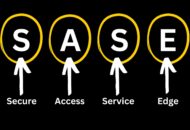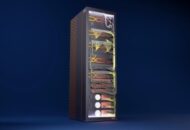Assuming that the take-over of Compaq goes ahead as planned, then their future success or failure of HP is of critical significance. Individually Compaq and HP are significant already, but the combined company is now threatening even IBM, and makes HP considerably larger than Sun.
HP has had a diverse product range for most of its long life, but there is little that Compaq can bring to the table to expand that. Indeed HP is already a strong competitor with Compaq in all their markets. The conclusion then is that size is the key driving force behind the take-over. This will of course create a lot of problems in trying to merge the two sales forces and support services. HP and Compaq have very different backgrounds and cultures and I suspect that the idea is to focus on HP standards and to try to draw the Compaq resources into this culture. Compaq have unfortunately already shown that this is difficult as they have struggled to come to terms with the diverse needs of Tandem and Digital within the Compaq infrastructure. They will have to undergo this change again, probably for the better though.
The new HP is reported to expect revenues of $20billion from imaging and printing, $29billion from access devices, $23billion from servers and storage and $15billion from services, $87billion is a lot! The combined staff is about 145,000 worldwide, which will obviously be trimmed down, even a small percentage creating a serious number of redundancies in the industry. Except for the printing operation there is overlap in all other sectors.
Presumably the two PC operations will be merged into the existing Compaq division. The conventional desktop PC products will be easier to merge, but the more specialist laptop, hand-held and wireless products, which are more in the growth stages of the product life cycle offer some problems but probably a lot more opportunities. The services operations can be combined relatively easily.
The conflicts in the server products is severe and is going to take some sorting out. Not only does this division provide over a quarter of the revenue, it is probably providing a bigger proportion of the profits and is responsible for creating much of the corporate image. The conflicts in the server products are quite alarming. On the hardware front both have major Intel based products, Compaq’s major range but a market HP have not ignored; I foresee some infighting here! HP’s major product line is based on their own proprietary RISC processor (although the forthcoming Intel 64-bit chip was partly designed by HP in order to ease migration). Thus Intel and HP RISC products could live together within such a big company, as proved by IBM. But who will handle the legacy of the Tandem and DEC products? They are not huge contributors to the total revenue, but if they become disgruntled customers, then I’m sure IBM and Sun will be only too ready to move in. Perhaps the most valuable asset to come from Compaq in this division is the work already done with clustered systems, areas of high expertise in DEC and Tandem.
The software is a shambles. Both use Windows on their PCs, both have UnixWare capability and HP are a leading light in Unix with HP/UX. But Compaq also have Tru64, Himalaya and VMS to support. I have no idea what they do with Ultrix, RMS, etc. from the past.
However the relationship with Microsoft is one of the most intriguing aspects. There are some schools of thought that suggest that this merger is an attempt to break free from Microsoft, particularly since the dominance of Windows is making it very difficult for hardware manufacturers to differentiate their products, other than price. This leads to price wars, particularly in a declining market such as the PC sector, which is the cause of so many problems (Dell excepted) among PC makers. The only way to break free is to offer an alternative to Windows, particularly on the servers. Unix, HP/UX in particular, has a good market share already, but the growth of NT threatens to bring the same chaos to server hardware suppliers as it has to PCs. Now there is an alternative in Linux, already backed by IBM, and tentatively by Compaq and HP. Now then is the time for the new HP to put its emphasis on Linux. Whether or not freedom from Microsoft is any advantage when OSS is the alternative is a moot point!








